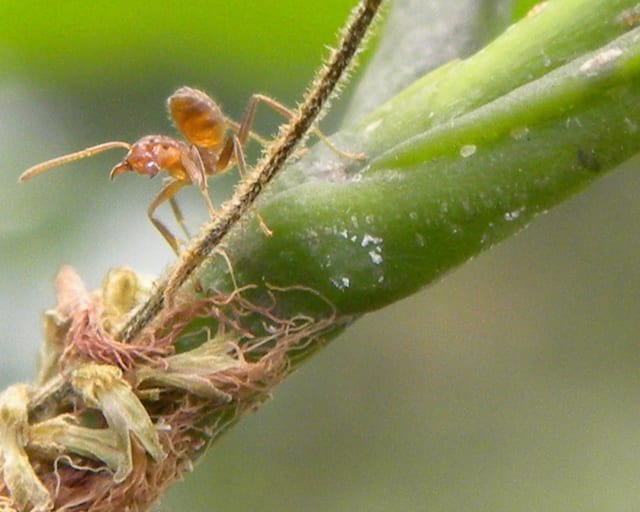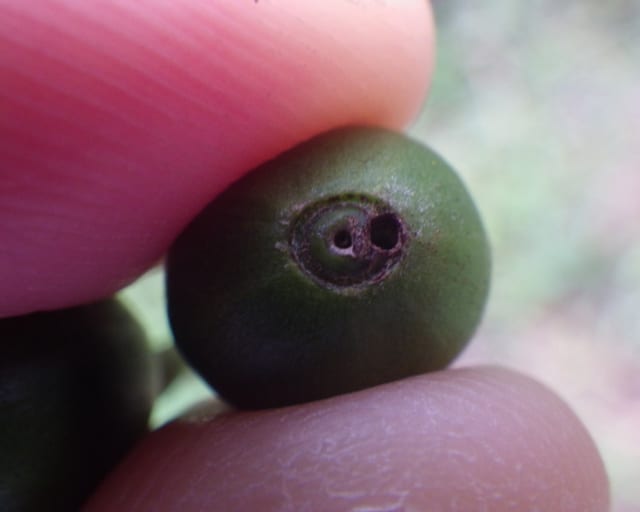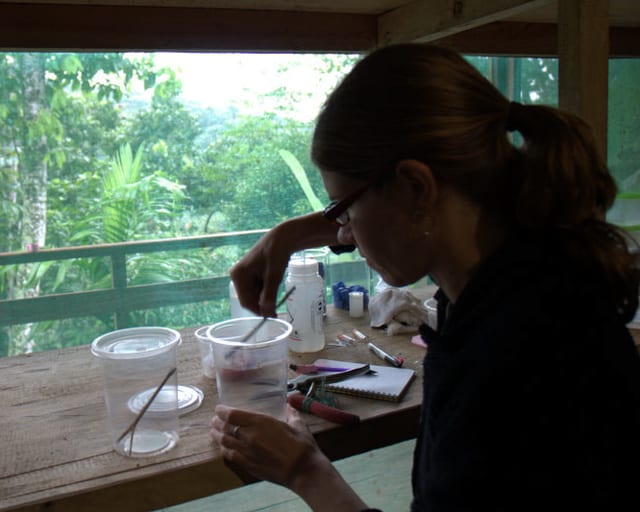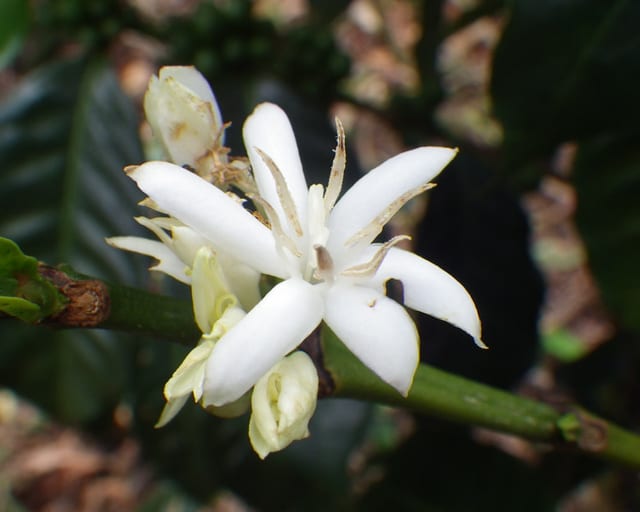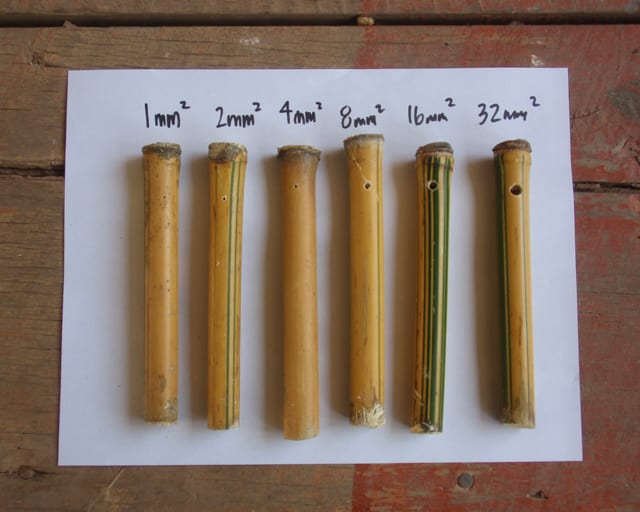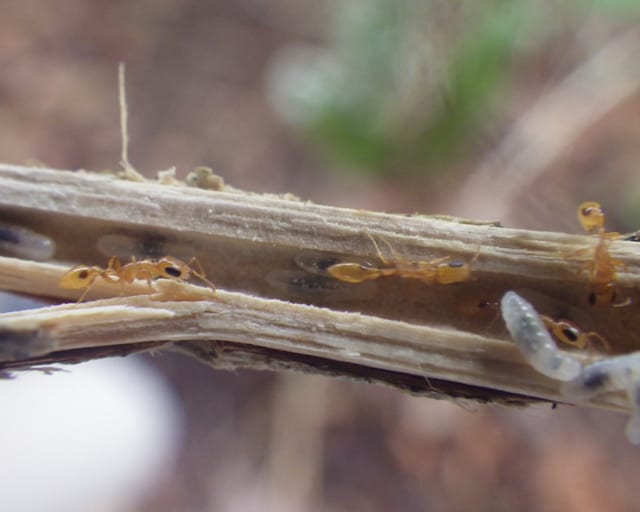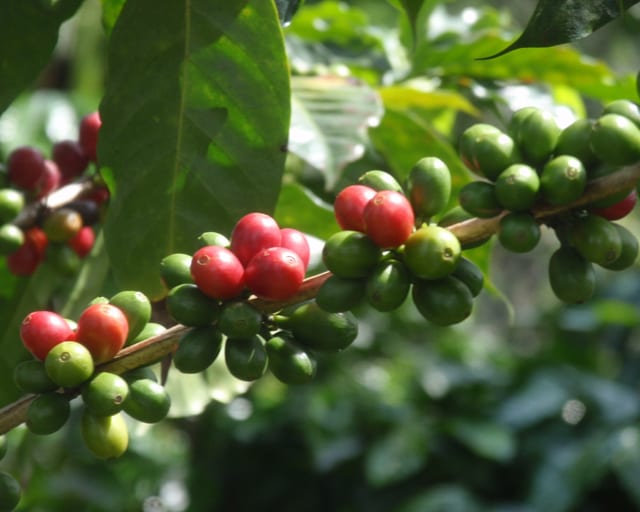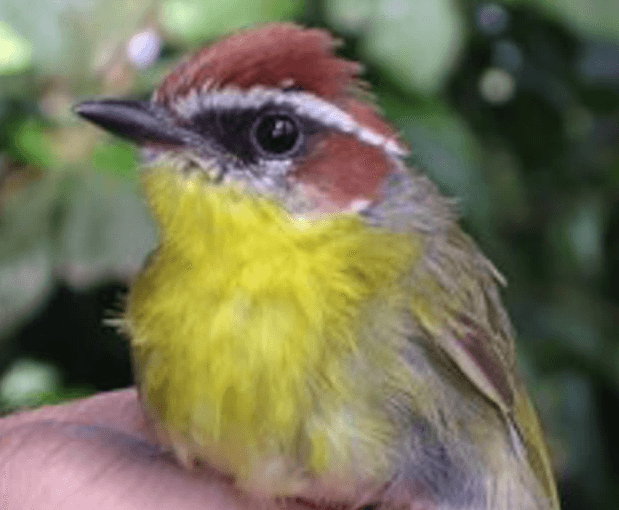- We study how coffee farm management affects ant abundance and biodiversity and the role of ants as predators.
- We have documented that ants, especially twig-nesting ants, prey on the worlds most important insect pest, the coffee berry borer.
- We have manipulated twig-nesting ant nest sites to determine how competition from arboreal and ground-nesting ants as well as habitat type influence nest colonization.
- We have studied coffee pollination and how coffee management and presence of aggressive ants influence coffee floral microbes.
- We examine how epiphyte abundance and diversity changes with coffee management, and if presence of aggressive ants hinders epiphyte colonization.
- We have documented changes in leaf hopper diversity with coffee farm management.
- We have used lab experiments to document strong trait-mediated effects of phorid flies on Azteca ants, and increases in importance of ant biodiversity for predation services.
- We have examined how the entrance sizes of nests for twig-nesting ants influence community assembly processes.
- We use twig-nesting ants as model systems to study how land management, competition, and environmental factors influence community assembly.
- We have examined how coffee shade management and excluding ants and bees from plants influences the coffee yields and fruit weight.
- We have examined nectar production by coffee shade trees and how nectar quality and quantity differs with coffee agroecosystem management.
- We have documented that functional diversity of birds in coffee agroecosystems correlates with more efficient insect pest control.

